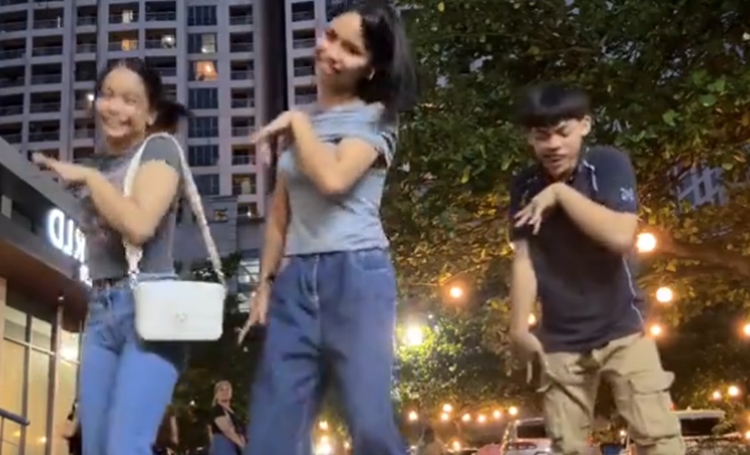Siblings of Carlo Yulo under fire for dancing and mocking PWDs
ELDREW AND ELAIZA YULO – The younger siblings of Olympic gold medalist Carlos Yulo are facing criticism for participating in a TikTok dance challenge that some netizens believe mocks people with disabilities (PWDs).
A user on X (formerly Twitter) reshared the video, which features the Yulo siblings and another individual dancing to the song “Let’s Get Retawded.” Their exaggerated actions, such as twitching, jerking, and uneven walking, were seen by many as imitating those with disabilities, further intensifying concerns over the controversial nature of the song’s lyrics.
The video, originally posted by TikTok user @majo.joshimhae, has since been taken down. Public reactions are mixed: while some believe the dance was meant to portray zombies, others found it offensive. One X user voiced concern that the siblings were mocking individuals who have experienced strokes or neurological conditions, while another condemned the video as disrespectful to PWDs, stating that it was not something to joke about.

The song itself has been criticized for its lyrics and associated movements, which many believe mock disabilities. This incident has reignited discussions about the insensitive portrayal of disabled individuals in mainstream media.

In a related case, BINI Maloi faced backlash over a TikTok video that allegedly mocked PWDs. The video featured a man dancing to the song “Kampana ng Simbahan” with exaggerated movements resembling seizures. Maloi commented, “NAPATAWA MO AKO HAHAHAHAHAHAHAHAHAHAHAHA,” and reposted the video on her account, which quickly sparked controversy online.
Netizens were dismayed, especially after discovering that the video was intended to imitate the dancing of PWDs. One Twitter user, who identified as the child of a PWD, expressed alarm at Maloi’s humor, stating that PWDs should never be treated as a source of amusement. Another netizen criticized Maloi and others who liked or reposted the video, urging them to educate themselves on the sensitivity of the issue.
